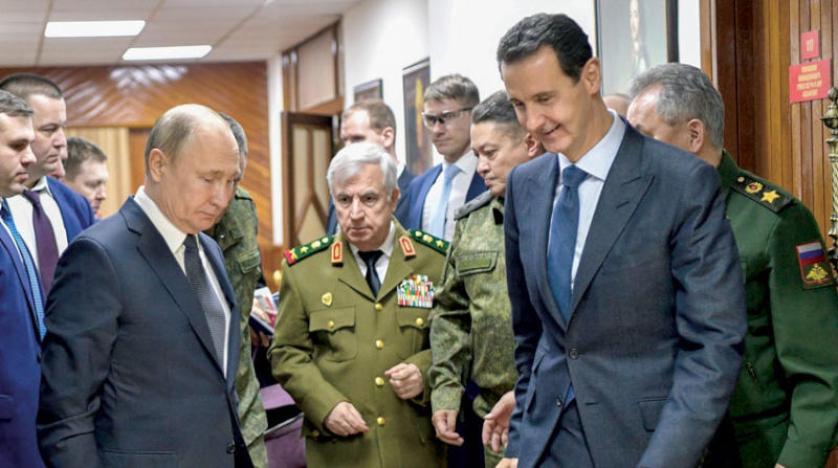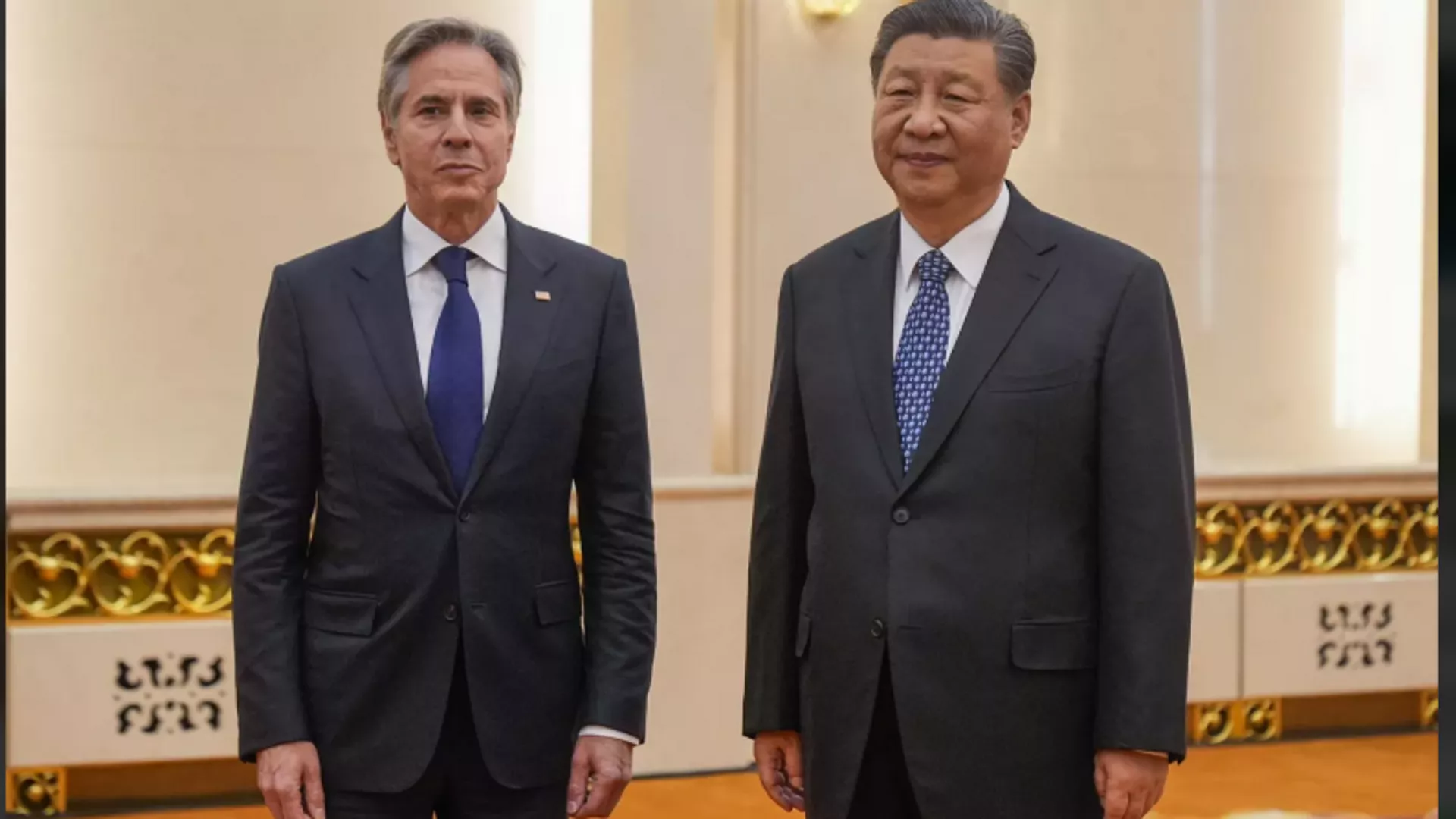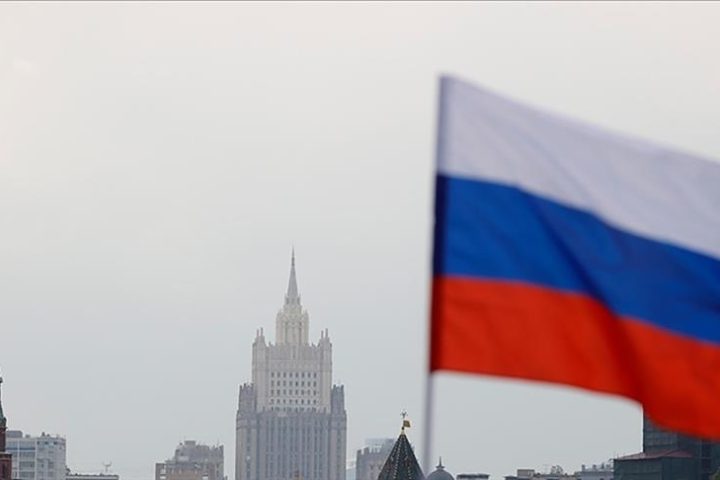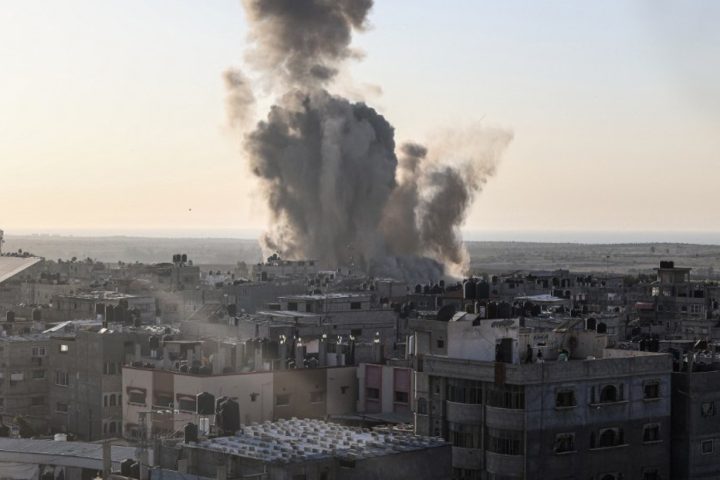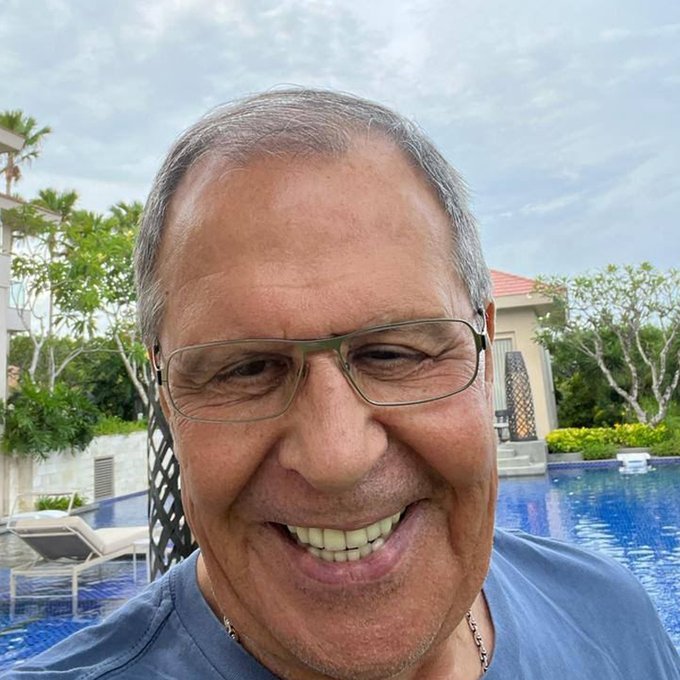Geneva is hosting two meetings today. The first is a meeting between US Secretary of State Antony Blinken and his Russian counterpart Sergey Lavrov, where the Ukraine issue will be discussed. The second is a meeting between United Nations Special Representative for Syria Geir Pedersen and U.S. official Ethan Goldrich. The second meeting will discuss the Syrian issue and the ‘step-by-step’ proposal.
Of course, neither meeting has the same strategic importance and results. But once again, there is a bond linking Syria and Ukraine. This connection dates back to 2014, when Russian President Vladimir Putin decided to embark on his Ukraine adventure and then annexed Crimea in March 2014. At the time, Moscow demanded that Damascus show determination in the peace process negotiations in Geneva. Putin then intervened militarily in Syria in late 2015 and reached an agreement with Syrian President Bashar al-Assad to stay at the ports of Latakia and Tartus for a long time. At the time, Assad was quoted as telling Russian officials that he “owed” moscow to strengthen its influence in the Middle East and that he was not like former Ukrainian President Viktor Yanukovich, who fled to Russia in February 2014.
- Germany, UK warn Russia of ‘Ukraine’
- Top US, Russia diplomats hold last-ditch talks amid Ukraine war fears
Putin says he wants written guarantees from the United States that NATO will not expand towards the Ukrainian border. Putin himself, however, has expanded towards NATO borders by establishing a Hmeymim Base in western Syria and deploying advanced S-400 and S-300 missile batteries tens of kilometers from the NATO advanced base in Incirlik, southern Turkey. Since then, cooperation relations between Russia and Turkey on willingness to attack have increased on the Syrian ground and on other regional and bilateral issues.
Another link between Ukraine and Syria emerged in Turkish-Russian relations. Ankara refused to recognize the annexation of Crimea, improved its strategic relations with Kiev, and supplied The Bayraktar drones (UAVs) to Kiev, which played an important role in changing the course of military wars against Moscow-backed forces such as Libya, northwestern Syria and Nagorno-Karabakh. Moscow, on the other hand, continued to support the eastern Ukrainian region. It is currently deploying tens of thousands of troops to the border and is offering conditions to Europe and the United States to return from the attack.
Both Moscow and Washington are looking into Syria
In this vast photography and strategic game, both Moscow and Washington are looking at the Syrian issue. Moscow has put an umbrella for the signing of the normalization agreement between Damascus and Crimea to make the ports of Latakia and Crimea a gateway for Russia. Latakia Port and Tartus Port are now in Moscow’s hands. Moscow is trying to keep Tehran away from these ports and the warm waters of the Mediterranean sea and to protect it from Israeli attacks.
Washington and Moscow have co-operation on delivering humanitarian aid across the Syrian border and preventing military conflict east of the Euphrates. However, the diplomatic conflict between the two sides continues openly and discreetly. The Russian side encourages the Arab world to normalize with Damascus and refuses to see Pedersen’s “step-by-step” proposal as an alternative to the Astana process, which Moscow is conducting in cooperation with Ankara and Tehran. On the U.S. side, he insists on the option of “step-by-step” as part of a broad perspective on the remaining issues and tries to control the ways of Arab normalization with Syria.
What is new in the US position on Syria is the transition from “negative neutrality” to “positive engagement”. The United States has launched a campaign against some Arab countries through diplomatic channels to control unilateral normalization steps with Damascus and to prevent Syria from returning to the Arab League without paying a price for the political process and without getting rid of Iranian influence. This campaign jeopardized the idea of holding an Arab summit in Algeria at the end of March.
After his experience in Afghanistan, Joe Biden’s administration does not want another failure in Ukraine, Syria or iran nuclear program negotiations amid growing pressure from Congress before the upcoming elections. According to an Arab diplomat with knowledge of the protest letter sent to Arab countries, the United States said that “the continuation of the decision to freeze relations between Arab countries and Damascus sent a message that this atrocity will not be tolerated and that the regime must take concrete and real steps before Arab countries make moves.” One of the demands that Syria is asked to fulfill regarding the political process in accordance with Resolution 2254 to achieve a lasting political solution is “Damascus’ liberation from Iranian influence”. As a matter of fact, Arab countries and the United States agree on this request to combat Iran’s behavior that undermines stability in the region.
The United States and its allies recognize that Jordan needs to open economic channels with Syria and that damascus needs to be given other options to reduce Iran’s influence. This explains why the United States and its allies support the “Arab Gas Pipeline” and “power grid” projects for Syria and Lebanon. At the same time, however, U.S. officials asked the Jordanian side if it had received any concessions from Syria. The U.S. side asked Jordan, “Have drug and captagon smuggling routes been blocked? Did you get security guarantees? Are the borders under control? Have you received assurances for the safe return of refugees without prosecution?” The US side also stressed that normalization should not be free and that the Russian side must meet its commitments to ensure stability in southern Syria and prevent smuggling across the Jordanian border.
The Americans reiterated to their European and Arab allies that they should coordinate with them before taking any steps, saying that Washington does not like surprises because it wants to put the Syrian issue on the negotiating table, as Moscow has done, to make exchanges, to link this file to other files that have changed priorities among the ‘elders’.

